Now Adam knew Eve his wife, and she conceived and bore Cain, saying, “I have gotten a man with the help of the Lord.”
[1] INTRO - parallel falls / summary
[1.1] How to read the old testament
How to preach. No shortage of writing on this. Sacrifice is what we put our lives to.. what imperative/encouragement to bring. Am I my brother’s keeper? To try to get inside of this question. The motive forces which drive it as a defence. The ways that we might be grace, subvert and fulfil it
Wisdom literature = Life as it is. The true truth of reality, Parables as descriptive, the isness - In all of the ways you can practically apply this, it is true to life as i understand it. Over against religiouse notional oughtness Vs what should and must be done against the naughtiness here portraye. Over against mere historical Vs what happened and the fossil records
Teaching by both Form and Content - the repetition is the point - teaching the pattern of patterns - history rhymes, history repeats. Form is not ‘poetic’ as if flowery or ornamental or in some way. These stories are distilled such that they contain more truth than mere anecdote.
We can be a bit inured to the familiarity of this story. It is so serious what Cain does. We already know we shouldn’t be like cain - how does this story help? What is not said, allows this to apply paradigmatically. There isn’t a detailed backstory Cain had had a bad day.. Somehow, by entering this as as fundamentally and far-reachingly true, we as a reading community, gain a tool for changing.
Literally me. I have found this intuitive to do with Adam - the first man a coward etc. if Adam is our father, Epigenetic inheritance Elemental, quintessential older-brothering - literally me - Cain is a Ryan Gosling / Christian Bale sigma male character.
(Thanking
- see also long-form podcast)(Summary with thanks to
)Birth, a new start
Eve says “I have gotten a man with help of Lord” Maybe this is because she believes will be the one to crush the head of the serpent..
Birth is a big theme in the Bible literally and metaphorically - and it’s not just that natality was more of a going concern in antiquity, the Bible loads a lot of its meaning onto the birth event:
Women struggling in childbirth at the structural moments in the narrative - Sarah, Rachel, Hannah, Elizabeth, Mary..
The birth metaphors of israel leaving egypt - blood on the door posts, waters parting then closing up (Ref)
To the centrality of the nativity
Paul’s language of creation groaning in childbirth
Jesus discussion with Nicodemus and the ongoing language of born-again christians
Miracle of birth straight after the fall indicates a continuation. Cain being born is New life - Life is going to continue - god is going to still work with his creation and is going to show grace to it. God has not given up. But. Sin.
Respawn event ~ and we’re back. Restarting the level of this computer game. Once again, from the top. As this serves in its literary format as a kind of rote learning, as a method for life as a kind of progressive iterating, or a kind of morbid circles of hell. Were it merely an eternal return this would be indistinct from karmic cycles of an entropic universe winding down from the the big bang. But for the interference of the Christ event.
Second creation, second fall - a perennial pattern.
Parallels
2 creation narratives /// 2 fall narratives
Vertical Sin against father // horizontal Sin against brother
First tablet of law // Second tablet of law
Marital sin // Fraternal sin
Serpent crouching in field / Sin crouching in field
Delight of face, desire / distress of face, face falls
Adam/Eve Hiding / Cain must be hidden
Avoidance of responsibility - blame snake/woman, claim not-keeper
Cursed is the ground / cursed from the ground
God clothes Adam/Eve / God marks/protects Cain
Cast out of Eden / Cast out of God’s presence
Sin as a trajectory
If you can imagine this as a stop-motion animation of an Ink blot, from a point node. There’s something in the repetition of the story which allows us to apprehend speed and acceleration.
The fall as a snap shot - bad things happen. The fall as a series of shots - bad things get out of hand quickly. See Cain’s great grandchild’s offspring Lamech says 70 time 7 revenge
The fall, a chip in the windscreen slowly growing to completely fracture the pane, where the integrity of the pane had consisted in those crucial relationships of us to ultimate reality, us between ourselves and that between us and created order. https://phil-blogs.blogspot.com/2011/10/saving-architecture.html
Sin as a non-linear escalation
📈 Death is exponential. Sin is logarithmic. We are squares in a world of cubic threats. One of the great public health challenges of this pandemic is creating a consciousness of non-linearity. It seems the immanent frame is the only frame in most people’s threat horizon. It seems the linear way we apprehend the speed of incoming peril will not compute acceleration. How do I think about threats to my life and to society? How do I think about trajectory, climate change, compound interest, cumulative consequences? Do I think of death as a static passive end point, or as a prowling lion, a multiplying enemy, a gathering storm? Is sin’s destructive influence in my life a steady drip, or are there multipliers?
Sin inspires disproportionate responses
“..But the people did not receive him, because his face was set toward Jerusalem. And when his disciples James and John saw it, they said, “Lord, do you want us to tell fire to come down from heaven and consume them?”..” Lk9v53-4
Disgust → Fire David vs Nabal, disciples vs villagers, religiouse vs irreligious, older brother vs younger brother, pharisees vs sinners.. Having previously thought of David vs Nabal in terms of revenge in a conflict of egos, I now read their scorched earth annihilation bids through the lens of Jonathan Haidt's Moral Disgust. There is necessarily a trajectory towards genocide in the religiouse mind, and it stems from disgust. Disgust evolved to help our omnivorous species decide what to eat in a world full of parasites and microbes that spread by physical contact. Disgust stems from a fear of the animal properties of mortality and associated decay. When you find a worm in the apple, mould on the pizza, you throw the whole thing out, a purge is a proportional escalation.
Sin as Religione
Older brothering and the pharisees
Yeast
Other Events to note
Cain’s sacrifice rejected
Maybe because it was not animal so no blood atonement
Maybe because not the first fruits just average, not sacrificing anything
By contrast, maybe Abel’s is accepted because so much more he brings symbol of his person and a recognition of the necessity of death
And, at a stretch, there is a notion that th younger Abel as archetypal priest should have lead the sacrifices ahead of Cain-as-King archetype
Cain is angry
When gift is thrown back, jilted, spurned, we ourselves are not seen/accepted
Feels cut out of the loop of relation with god feels threatened by that
You did this, you destroyed yourself for nothing
His face fell -
Being found out - emasculated - if masculinity is the use of strength for others,
Victim complex that just wants to watch the world burn
Jealous anger exercised against the one who was accepted
Bitter anger exercised against the one who cut him out
God acts - challenges his heart before action
Challenges heart before action
Sin must be dealt with at root - the garden is within his heart - is he needs to guard that garden
Sin acts - wants to control Cain’s strength
Parasitic - Unfolds a civilisation, an alternative city
Because cut out of gift - In rebellion or alternative to the city of god
Outline
(2 falls)
2 sacrifices compared - being different
2 sacrifices across time - becoming older/apart
2 sacrifices reconciled - unity across gens together
(god’s grace)
3 In the course of time Cain brought to the Lord an offering of the fruit of the ground, 4 and Abel also brought of the firstborn of his flock and of their fat portions.
[2] SACRIFICE - 2 temperaments
Sacrifice as an orientation, a mindset, a mode of being
[2.1] sacrifice as stewardship
Do something / Do something proportional / See we are differently gifted - Parable of the talents.
Mt25v5 To one he gave five talents, to another two, to another one, to each according to his ability. Then he went away. 16 He who had received the five talents went at once and traded with them, and he made five talents more. 17 So also he who had the two talents made two talents more. 18 But he who had received the one talent went and dug in the ground and hid his master’s money. 19 Now after a long time the master of those servants came and settled accounts with them. … ‘Well done, good and faithful servant. You have been faithful over a little; I will set you over much. Enter into the joy of your master.’ 24 He also who had received the one talent came forward, saying, ‘Master, I knew you to be a hard man, reaping where you did not sow, and gathering where you scattered no seed, 25 so I was afraid, and I went and hid your talent in the ground.
[2.2] Sacrifice as worship - as giving to the church
Here we are, aptly, on harvest day - think about what you could be giving, in thanks.
[2.2.1] What is good sacrifice-as-worship
Widow’s mite
Mk12v41 And he sat down opposite the treasury and watched the people putting money into the offering box. Many rich people put in large sums. 42 And a poor widow came and put in two small copper coins, which make a penny.6 43 And he called his disciples to him and said to them, “Truly, I say to you, this poor widow has put in more than all those who are contributing to the offering box. 44 For they all contributed out of their abundance, but she out of her poverty has put in everything she had, all she had to live on.”
Macedonians out their poverty gave
2 Cor 8v1-4 - 1 We want you to know, brothers,a about the grace of God that has been given among the churches of Macedonia, 2 for in a severe test of affliction, their abundance of joy and their extreme poverty have overflowed in a wealth of generosity on their part. 3 For they gave according to their means, as I can testify, and beyond their means, of their own accord, 4 begging us earnestly for the favour of taking part in the relief of the saints—
Cheerful giver
2 Corinthians 9:6-7 - 6 The point is this: whoever sows sparingly will also reap sparingly, and whoever sows bountifully[a] will also reap bountifully. 7 Each one must give as he has decided in his heart, not reluctantly or under compulsion, for God loves a cheerful giver.
[2.2.2] What is the opposite of sacrifice-as-worship
Ananias and Sapphira - holding something back
Acts 5v1-6 But a man named Ananias, with his wife Sapphira, sold a piece of property, 2 and with his wife’s knowledge he kept back for himself some of the proceeds and brought only a part of it and laid it at the apostles’ feet. 3 But Peter said, “Ananias, why has xSatan filled your heart to lie yto the Holy Spirit and to keep back for yourself part of the proceeds of the land? 4 While it remained unsold, did it not remain your own? And after it was sold, was it not at your disposal? Why is it that you have contrived this deed in your heart? You have not lied to man but to God.” 5 When Ananias heard these words, he fell down and breathed his last. And great fear came upon all who heard of it. 6 The young men rose and wrapped him up and carried him out and buried him.
Pharisees - Tithing mint/dill
Mt23v23-24 “Woe to you, scribes and Pharisees, hypocrites! For you tithe mint and dill and cumin, and have neglected the weightier matters of the law: justice and mercy and faithfulness. These you ought to have done, without neglecting the others. 24 You blind guides, straining out a gnat and swallowing a camel!
But it’s not just a peculiar religious act of worship
JBP - sacrifices we make in personal development ~ (caveat not inevitably)
Bataille/Mauss - sacrifice in society as the sacred bond of gifts ~ (caveat where trauma impedes this)
[2.3] Sacrifice as paying it forward / faith
Imperative to be a person who gives personally
Sacrifice as imminent waste
Individual Maturity
JBP’s evolutionary psychology analysis of sacrifice is interesting, one doesn’t have to settle for it as mere materialism, but there is at least as much meaning to be found in Cain and Abel as he draws out of it.
[2.3.1] Sacrifice as delayed gratification / paying it forward
- short on making sacrifices as a relationship to the infinite.
- long on cain and abel
What are we talking about when we say ’sacrifices’
[2.3.1.1] Making sacrifices at all
Teaching delayed gratification as an evolutionary psychological meme that is symbolised in these stories to describe and prescribe forms of paying-it-forward. It’s the experiment with a child in the room with a marshmallow - you can eat the one now, or, if you wait ten minutes, you can have two. A tension between the nascent pre-frontal cortex developing to rationalise future reward, with the hypothalmic hunger regulating system
It hasn’t been automatic in the course of history, it’s not automatic in the life of any given child. But as a principle - if you make sacrifices, it will go well for you and your offspring in the land. Precursors to modern notion of delay and exchange on which civilisation is built - bargaining with the future. Sacrificing who you are for who you could become
[2.3.1.2] Making the right sacrifices
First rate sacrifices are your relationship to the infinite - cain withdraws from the infinite, because he can’t tolerate his own vulnerability.
Cain is dreadfully unhappy because nothing he ever wants happens - and that’s partially because he doesn’t really want it, because if he really wanted it, he’d make the right sacrifices
Cain becomes unlimitedly angry, as we do, when it is revealed that I am complicit in my own demise. When this is shown, am I not motivated to destroy the ideal, to destroy the favoured son of god
Two essential patterns of reaction to the self-conscious vulnerable conditions of existence
1. Humbly approach infinity with a determined attempt to make the appropriate sacrifices.
2. Arrogance resentment and the keeping of everything good for oneself, and the degeneration of the soul into something that’s homicidally murderous.
[2.3.2] vs Sacrifice - cause/effect - Sacrifice is not a vending machine, but.
How to read the bible - how to speak about wisdom literature’s observation of cause/consequence, without allowing it to be received in simplistic ways
I think Peterson is generally careful to insert caveats. A lot of petersonian stoic self-help bros out there are pushing a wellness routine as a defacto prosperity gospel give-to-get versions of a mechanical universe.
Job - God can do what he wants and There are passages to illustrate the question of non-consequence, life’s absurdity
Judicious sacrifice to proportional reward in aggregate over time, one could testify there is some correlation, but its not a vending machine.
Forcing a language for dealing responsibly and sacrificially with the things that you can control
It’s not saying if you give sacrifices, that life in a complex world won’t continue to be complex. But, regarding stewardship, if you are knowingly not sacrificing - you will face being caught out and the shame of the comeuppance. And that that is where so much anger stems from.
A subtle thing, that so easily slides into an - if you have cancer, it’s your fault. But it is possible to say, if life isn’t yet what is should be, you have a primary responsibility to do something about it. It is a difficult thing to do, and a difficult thing to articulate - maybe I haven’t done that well.
[2.4] Sacrifice’s social vision.
[2.4.1] Sacrifice without love gains nothing
“If I give away all I have, and if I deliver up my body to be burned, but have not LOVE, I gain nothing.” 1Cor13v3
Love is vital to effective appropriate sacrifice
My love language of choice is acts of service. It is also my passive aggressive unlove language. I’m sure Sarah and others can attest that Phil is capable of performing an act of sacrificial service, delivering his body up to be burned at the washing up bowl just so others incur debt I can charge with interest. Sacrifice performed without love is the worst.
[2.4.2] God desires mercy not sacrifice
11And when the Pharisees saw this, they said to his disciples, “Why does your teacher eat with tax collectors and sinners?” 12But when he heard it, he said, “Those who are well have no need of a physician, but those who are sick. 13Go and learn what this means: ‘I desire mercy, and not sacrifice.’ For I came not to call the righteous, but sinners.”
If sacrifice is a giving, what is it given to, how do you measure its effectiveness.
Impact vs effort ~ there are some ‘sacrifices’ charitable activities where the optics overwhelm the actual intent, and perversely the poor are left worse off.
[2.4.3] sacrifice as the sacred / collective futurity
Imperative to be a culture that gives/sacrifices, collectively/communally
Our collective Futurity as a notion of the infinite
Sacrifice as something given away, for the common good of social progress and economic function. This is not to diminish sacrifice to a mere technique, but rather to temper that it is a larger true truth, observable in the way the world works. Christians don’t have a monopoly on this.
See Parable of dishonest manager - Luke 16 - has this moment of realising - deliberately provocative he is sparring with the older-brother archetype pharisees in this passage - frames this lazy/timid middle manager,
‘What shall I do, since my master is taking the management away from me? I am not strong enough to dig, and I am ashamed to beg.
This middle manager faces an existential crisis, and has an epiphany to offer discounts to aged debtors to raise cashflow for his master’s business. The parable’s master commends this. And Jesus instructs his disciples to do likewise - so they may “receive you into the eternal dwellings.”
Waste as the sacred, sacrifices are the symbolic display of a notion of more-than - excess energy, translated into the effervescence of life
According to Bataille's theory of consumption, there is this share that is an excessive and non-recuperable part of the economy which must either be spent luxuriously and knowingly without gain in the arts, in spectacles and sumptuous monuments, OR it is obliviously destined to an outrageous and catastrophic outpouring, in the contemporary age most often in war
Marcel Mauss’s The Gift - He shows that early exchange systems centre around the obligations to give, to receive, and, most importantly, to reciprocate. They occur between groups, not only individuals, and they are a crucial part of “total phenomena” that work to build not just wealth and alliances marked by economic wants but social solidarity because “the gift” pervades all aspects of the society. ~ the potlatch
Spilt perfume - How you spend it - what you value, what you emphasise. Know what you value by what you spend. By the conversion of a man’s checking book. Know what you hold sacred by what you sacrifice. It is the excessive nature of her sacrifice, which imprints in the mind - what she has done will be told in memory of her
[2.4.4] vs Sacrifice - temperaments and trauma
Some time ago the evening service was looking at Mark and I had the passage on the healing of the paralytic in Mark 12. This gave me to meditate on paralysis, inaction, not doing the doing. And i had then recently been reading Denise Riley’s account of losing a child, Time Lived Without It’s Flow, which captured for me, in my own lesser ambiguous grief, that experience of paralysis. She says:
The prospect of recounting it in a written form stayed, for me, both repugnant and implausible for well over two and a half years after the death. You can’t, it seems take the slightest interested in the activity of writing unless you possess some feeling of futurity. The act of describing would involve some notion of the passage of time. Narrating would imply at least a hint of ‘and then’ and ‘after that’. Any written or spoken sentence would naturally lean forwards towards its development and conclusion, unlike my own paralysed time.
I could list ways i am ungenerous, but my emphasis here is trying explicate compassionately. Archetypally those younger should be those more Abel and less Cain. But for the anxious generation. I think of those in my life who present as ungenerous in small or large ways. To some extent these reflect an immaturity to be gently invited encouraged educated out of. To some extent the immaturity is a minor-narcissism rooted in trauma - to be healed out of. A myopia, believing not only that other people don’t exist, but that a future doesn’t exist, and so sacrifice is foolish. I get it. But we have to help each other heal. There is a impish and fortressed front that overstates life’s absurdity, that leads to ungenerosity. There is also a traumatised temporality, under-formed notion of futurity.
[2.5] summary of these two postures/temperaments
Happy sacrificer
Mr Abel with his largesse magnanimity, a vitalism more generally, lavishly possessed of a notion that the world is abundant, dazzling presumption that your life matters, so he finds what to do with his hands and do it with all his might.
Unhappy sacrifice avoider
Mr Cain, with small minded miserablism, abstemiously swingeing frigid cringe of joyless sacrifice, grasping, clasping, a scarcity mindset phoning it in to his disincarnate life.
It becomes harder and harder to resist being Cain as you become the older brother in various contexts
And the Lord had regard for Abel and his offering, 5 but for Cain and his offering he had no regard.
So Cain was very angry, and his face fell. 6 The Lord said to Cain, “Why are you angry, and why has your face fallen? 7 If you do well, will you not be accepted? And if you do not do well, sin is crouching at the door. Its desire is contrary to you, but you must rule over it.”
[3] RESENTMENT - 2 seasons/situations - often in sequence, often in juxtaposition
3.1 - Pairing across time - older/younger - how to age well
3.2 - Pairing across relationship - near brothers - how to live together well
The closer it is to home, the more it shows up the difference - a brother is symbolically the identical start point. Resentment linked to undervaluation, being caught out and found a fool. Good money after bad, a losing battle
[3.1] OLDER/YOUNGER - Being different ages, aging, different seasons, transition, time and consequence of sacrifice
Ronald Rolheiser - Sacred Fire
I’m grateful to L introducing us to this book, it’s seemed really timely in discussions that have arisen in a number of contexts, around how Millennials relate to GenZ, which is captured in an account which speak directly to a spirituality of an adolescent seasons juxtaposed and coincided with a middle-of-life season.
I would be interested if anyone has recommendations of other approaches to this. Maybe it’s not that profound, Life is not flat, different seasons.. Maiden-Mother-Matriach, Youth-Warrior-Sage, or other taxonomies of distinct seasons
Rolheiser characterises three phases
Essential discipleship - the struggle to get our lives together
Mature Discipleship - the struggle to give our lives away
Radical discipleship - the struggle to give our deaths away
(a bit like Steve’s account of the 5 sections of the bible - the sections are not gradiented and are not equally spaced) First few years, the massive middle chunk, then, ending well. The break in the continuum struck me - the passions, proclivities, temptations of your teens and twenties are upside-downed as your turn into your 30s. You tilt from your potentiality to your actuality, from the endless possibility of eternal maidenhood to the darkening actuality of your mortal being.
All those grandiose dreams, all that potential, all that energy, and what have we achieved? Most all of us can relate to Henry David Thoreau's famous line: "The youth gets together his materials to build a bridge to the moon, or, perchance, a palace or temple on the earth, and, at length, the middle-aged man concludes to build a woodshed with them." And that is a comedown that is not easily digested.
Moreover, once the sheer pulse of life, so strong in us during our youth, begins to be tempered by the weight of our commitments and the grind of the years, more of our sensitivities begin to break through, and we sense more and more how we have been wounded and how life has not been fair to us. New demons then emerge: bitterness, anger, jealousy, and a sense of having been cheated. Disappointment cools the fiery energies of our youth, and our enthusiasm for life begins to be tempered by bitter- ness and anger as we struggle to accept our limits and make peace with a life that now seems too small and unfair. Where we once struggled to properly control our energies, we now struggle to access them. Where we once struggled not to fall apart, we now struggle not to petrify. Where we once struggled with Eros, the god of passion, we now struggle with Lyssa, the goddess of anger. And where our sympathies once were with the prodigal son, they now are more with his older brother. As we age we begin more and more to struggle with God.
Someone once quipped that we spend the first half of our lives struggling with the sixth commandment (Thou shalt not commit adultery) and the second half of our lives struggling with the fifth commandment (Thou shalt not kill). That may be a simplification, but it is a fertile image. Indeed the famous parable of the prodigal son and his older brother can serve as a paradigm for this: the prodigal son, illustrating the first half of life, is very much caught up in the fiery energies of youth and is, metaphorically, struggling with the devil; the older brother, illustrating the second half of life, struggling instead with resentment, anger, and jealousy, is, metaphorically and in reality, wrestling with God.
And he highlights anger and resentment as a characteristic of later life. And this i think is a helpful way to think about Cain as a perpetual possibility as we age.
My framing for this therefore is not - do be like Abel, don’t be like Cain, but rather to consider that this is perpetually the slider of challenges. You cannot avoid this, like you cannot avoid getting older, but this is what to wrestle with.
There was also this in my passage on Ezra nostalgia and division/tension between generations - they raisd up a bunch of 20-somethings to oversee the build, and it wasn’t as grand as the former, and a bunch of the elder mourn and wail around the site, bringing the whole thing to a premature end. disappointment / discouragement / nostalgia.
It might seem hard to be the younger, disadvantaged, less capital to sacrifice. But equally there is less at stake, proportionally lower liabilities so in net, often more disposable income, more time, more possibility to wreck it all and still start over, more energy to move fast and break things.
The older brother position is harder, responsibility for the dependents on the family farm. With age, we drift from sins of the liberal to sins of the conservative.
Somewhat as the saying goes - If you’re not a socialist before you’re twenty-five, you have no heart; if you are a socialist after twenty-five, you have no head. This feels like a theological substructure to perennial differences. It would be interesting to map the sorts of friction across other dichotomies ~ leave/remain; urban/rural, trad/woke
[3.2] BROTHER - pairing 2 people juxtaposing ages - comparison
Jesus is often speaking to the older-brother temptations
Resentment and religion - key in jesus teaching, a key temptation/subversion of the good which jesus stands to resist
Given difference there can be comparison coexisting. Are the sins of Cain quintessentially older-brother-sins - like there’s inevitably brother dynamics going on in your life, in your family, in your church.. And in any given fraternal dyad there’s a proximity and asymmetry - a gradient of experience/responsibility.
Prodigal son
Martha
Martha is the poster for the oldest child syndrome. Of the three siblings Martha, Mary and Lazarus, Martha is the oldest. And being the firstborn, she is a perfectionist; she enjoys making other people happy; she is highly motivated to achieve success; she takes on a leadership role; she is responsible; she feels jealous or neglected when younger siblings received attention; she is bossy; she is a rule-keeper; she is detail-oriented; she is highly organized; and, she is determined. And this firstborn status serves her well. https://womeninscripture.com/martha
[3.3] comparison becomes resentment becoming murderous across
Intergeneration
Devastating to be out given by a younger member. Becoming resentful. What you are, what trajectory you are on. What is that ossifying with age, what is that dynamic Vs youth renewed.
Not that Cain is a wrong 'un, not that this is a generic metaphor for our fallenness, but that there is a specific temptation to murder, as we get older, related to disappointment, related to sacrifice.
As you get older it would appear you have more resource, but you also have more responsibilities ~ your liabilities outstrip you ability to provide, you are less able to mask your woundedness, less able to compensate the challenge to present as empathic by theatrics
Cain is the default, the factory setting, unless active work is done, this is it
Over time, after the sacrifice, what it is that you are becoming
[3.4] The Process of becoming
Resentment’s anger is open to spiritual capture
Arousal
Movement - within/without
You are a door - what you are becoming, what you allow in
Sin awaiting at the door / Other doors ways
Proverbs Woman in doorway .
Lady wisdom / Lady Folly - pr9
Jesus at door will come in and eat
Behold, I stand at the door and knock. If anyone hears my voice and opens the door, I will come in to him and eat with him, and he with me. Rv 3v20
Anger - is the exploit
In your anger do not sin. Note murder as contempt
A provoked porousnous as an aroused state
Enemies
Desire for Cain is desire to capture and control. Overcome by evil
Progressive capture. Sin crouching at the door? What do you invite in? What takes advantage of you
Guard your heart
Psalm 51- Don’t give the devil a foothold
Satan to sift you
We are all older than some
We are all brothers in some direction
We have to solve for wide and narrow intergenerationality? What is redemptive brotherhood? How to out do one another in doing good?
8 Cain spoke to Abel his brother. And when they were in the field, Cain rose up against his brother Abel and killed him. 9 Then the Lord said to Cain, “Where is Abel your brother?” He said, “I do not know; am I my brother’s keeper?”
[4] BROTHERHOOD - fraternal relations - you are your brother’s keeper
We visited this passage about 7 years ago, and Sarah preached this passage, and drew various threads
[4.1] This is about me
I need you to know how much this is a message to myself. I am the olderest of older brothers. In the battle rap of my daily frisson with the 8 housemates, i am a bum, i do live in a trailer with my mom, I do got a dumb friend named cheddar bob who shoots himself in his own leg with his own gun etc - it’s literally me. This is where we wind up, i just have speedrun the route to this through london-churn’s particular accelerator
[4.2] Conviction and how to call this out?
To slide into the meta. What is the voice that speaks this question - where is your brother?
What is it to make utterances
The danger of cain is very real, and the ways we kill each other
I don’t know, i feel like a tentative preacher, merely advisory, so long overdue a coming of age, a license to make utterances: Where are you? What have you done? Where are you hiding? Where is your brother? How do you say the saying of these things? Driscoll offers his “where are you?’ til voice is hoarse. in a way that was formative of very online evangelical masculinity for a decade, and at some level he is not wrong. But also - God protects Cain
Problem with preached utterances - they fall in the conscientious and they double down, and the unconscientious are oblivious to the needs anyways
Driscoll Where are you 11:20; Driscoll How dare you 1:07:07
[4.3] What is at stake?
We have brothers who are no longer with us.
And as far as it relates to my preaching, there is the plausible deniability of recreational ministry part time pastoring - i’m literally not the keeper. Unless I am. And where I am, I am as in the church at large - epidemic unseriousness laissez faire lackadaisical shepherding / Harrowing failure metric - the lives you saved / How to save a life? / Literally and figuratively / Not many if you should be older brothers / Who is my neighbour when all neighbourliness is seconded to the nanny state
Am I my “Brother”’s “Keeper’?
What did he mean by this?
Could just be deflection, a rhetorical question - he’s murdered him, this is a look-over-there, kind of whataboutism but, Deeper than mere deflection. The answer here is possibly yes - so render a high account of brotherliness. But how far is it plausible practicable? What is Good-enough brothering? Slight of hand in Cain’s deflection - Am I my brother’s keeper? Where is the answer reasonably yes, but defensibly no..
‘Keeper’ - what is a Keeper / where am I a Keeper?
‘Brother’ - who is my Brother? Extent and practical subsidiarity?
Am i my brother’s keeper?
What alt to shadow brotherliness?
Positive Brotherly Roles?
Who is my brother? Universal or Honorific? God is not dismissive of Cain’s question. Maybe we should treat our brothers in Lord as brother
2 Samuel 1:26 I grieve for you, Jonathan my brother; you were very dear to me. Your love for me was wonderful, more wonderful than that of women.
1Tim5v1-2 - Instructions for the Church - 5 Do not rebuke an older man but encourage him as you would a father, younger men as brothers, 2 older women as mothers, younger women as sisters, in all purity.
Positive Guardian Roles
Cain is responsible for upholding order of garden / When you fail everything fails / Specific duty of older brother to younger / Older brother bear responsibility for younger siblings and for representing father to siblings - Reuben. / Original fall failure of guardianship in lesser and greater realm
Switch from Brotherly to Fatherly
Paul to the Corinthian church guardian lest led astray
2cor 11- Paul and the False Apostles - 1I wish you would bear with me in a little foolishness. Do bear with me! 2For I feel a divine jealousy for you, since I betrothed you to one husband, to present you as a pure virgin to Christ.
In 1 Thessalonians 2:11-12 Paul writes this: For you know how, like a father with his children, we exhorted each one of you and encouraged you and charged you to walk in a manner worthy of God, who calls you into his own kingdom and glory.
Antidotes to toxic brotherhood in fatherhood and the benign paternal? / Fatherhood of god vs brotherhood of man / Be more dog / Be where the party is at / Generous communication / Computational kindness / Pay it forward / Make a plan to be exploited / Ways that infantilizing infrastructure of the charity sector and welfare state give rise to a banal brotherhood of all, seething with petty bitternesses and resentment / It is material that there is such widespread fatherlessness?
Switching to Father model presents novel Coordination problems
Coordinate to do well - See taking paralytic to jesus / Compete with one another - Out do holiness / In those context where regulation is needed - where a culture is being set? / as analogue for conservative temperament and regulating commons / being different ages on top of one another in intergenerational community / So we have this house, I think about this a lot / Generations developing / Humility vs devoured by bitterness
[4] OUTRO - God’s grace?
15 Then the Lord said to him, “Not so! If anyone kills Cain, vengeance shall be taken on him sevenfold.” And the Lord put a mark on Cain, lest any who found him should attack him.
Then god comes onto scene / All of life is potential to sacrifice / Over time, what has been paid forward cashes out / Sacrifice is relative - how to calibrate / Relativity revealed over time within you
Was it even a sacrifice - Hudson Taylor or David Livingstone variously quoted as “I never made a sacrifice” https://www.desiringgod.org/articles/i-never-made-a-sacrifice






![🦠 [05] Virality: Theologies of non-linearity](https://substackcdn.com/image/fetch/$s_!dHIl!,w_1300,h_650,c_fill,f_auto,q_auto:good,fl_progressive:steep,g_auto/https%3A%2F%2Fbucketeer-e05bbc84-baa3-437e-9518-adb32be77984.s3.amazonaws.com%2Fpublic%2Fimages%2Feff59d22-9e19-47d2-9928-2fdd4e7b2519_828x624.jpeg)
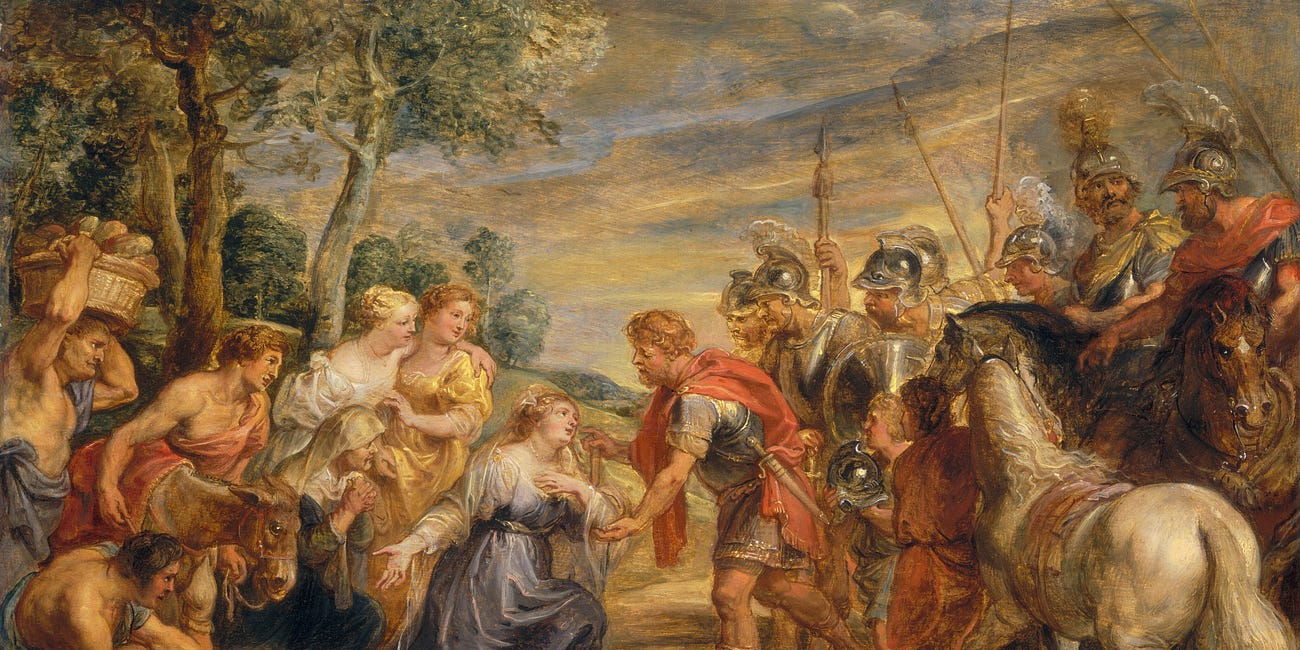
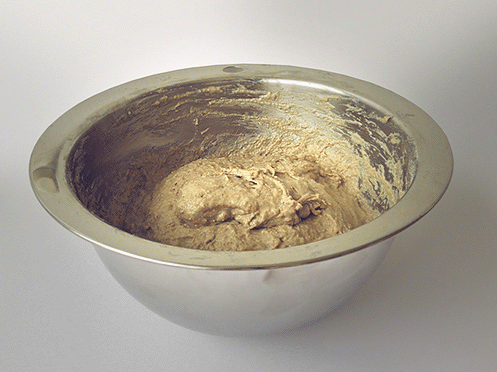

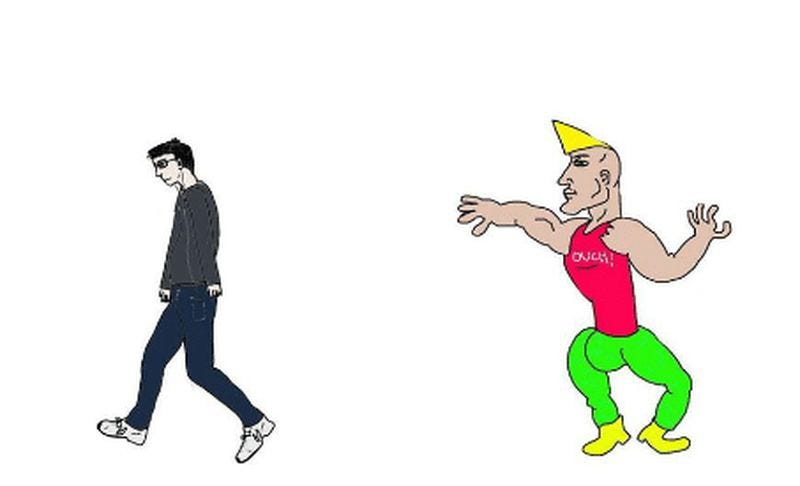



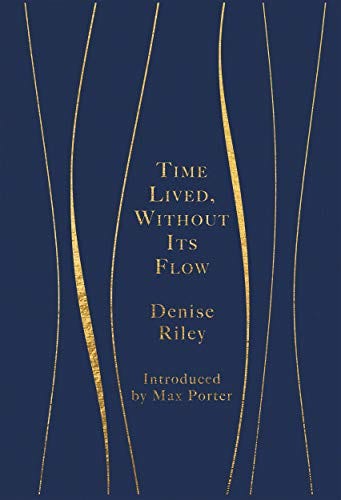


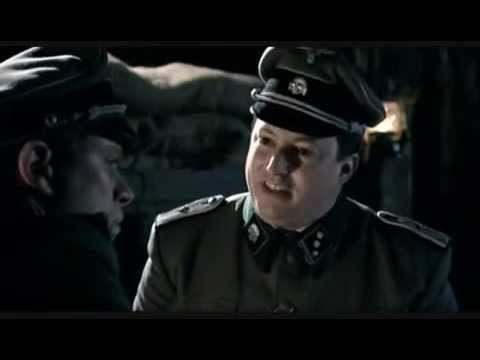


![■ Anonymous Thu Nov 12 23:15:44 2015 No.60347568 (View) File: 794 KB, 2000x1339, kurt_cobain.jpg [Show reposts] Image search: [google] [iqdb] >no I don't have a gun what did he mean by this? ■ Anonymous Thu Nov 12 23:15:44 2015 No.60347568 (View) File: 794 KB, 2000x1339, kurt_cobain.jpg [Show reposts] Image search: [google] [iqdb] >no I don't have a gun what did he mean by this?](https://substackcdn.com/image/fetch/$s_!xMYA!,w_1456,c_limit,f_auto,q_auto:good,fl_progressive:steep/https%3A%2F%2Fsubstack-post-media.s3.amazonaws.com%2Fpublic%2Fimages%2F2e106ca9-aa7d-43cf-901b-48080fed5b37_596x212.jpeg)







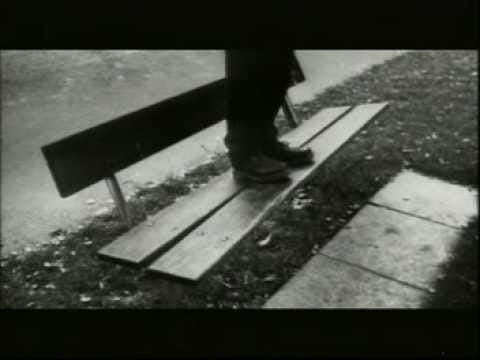

Share this post